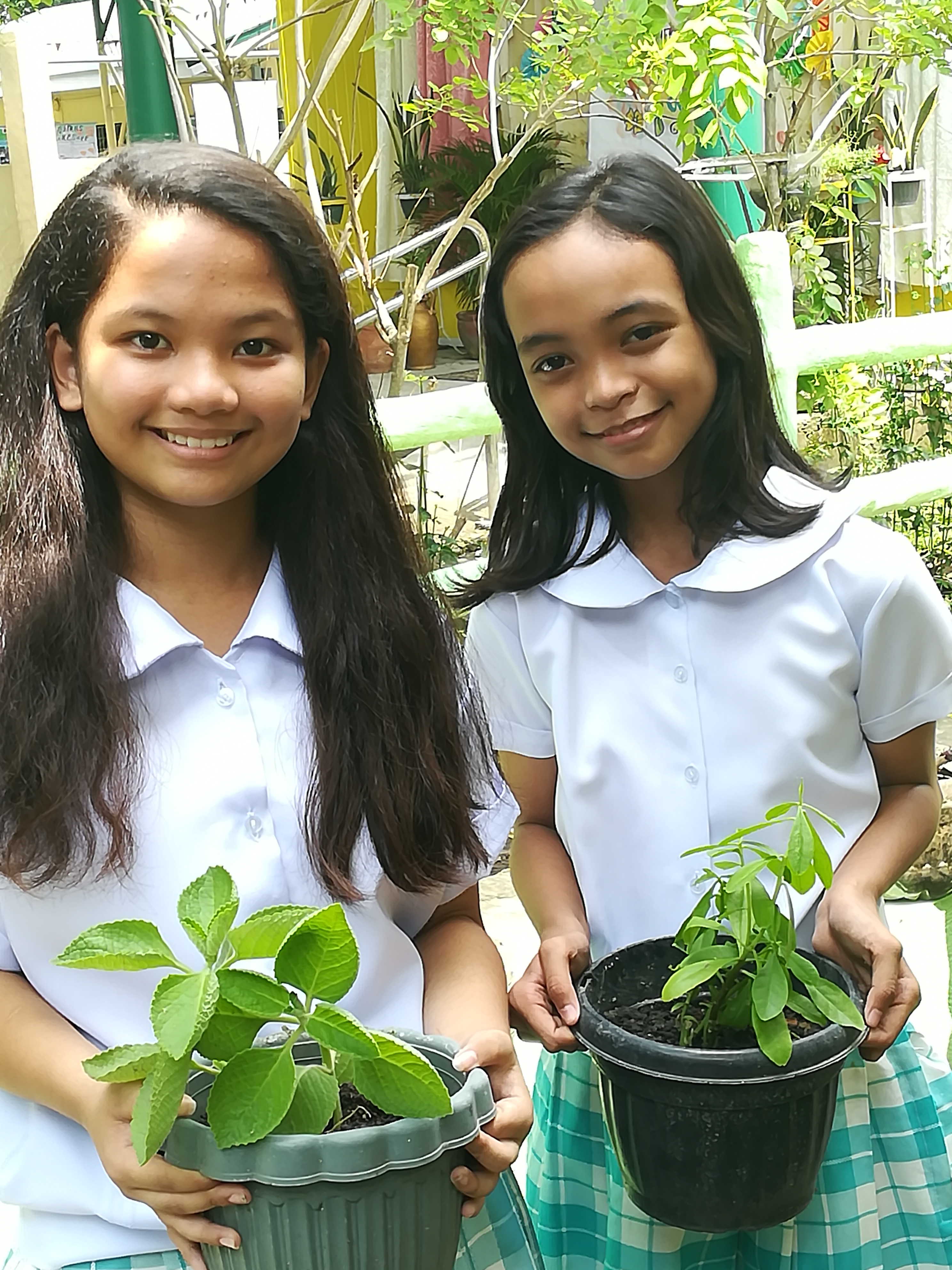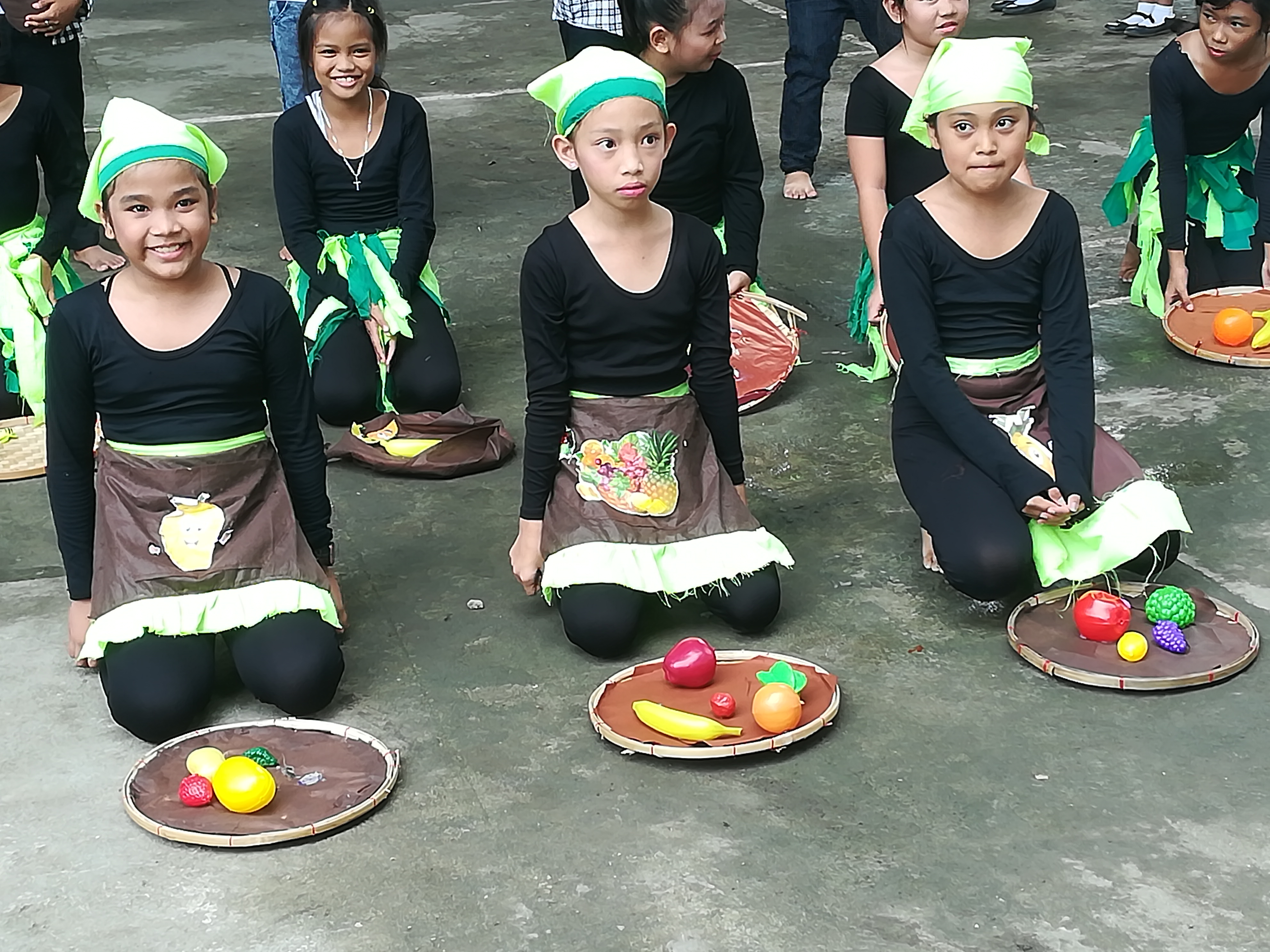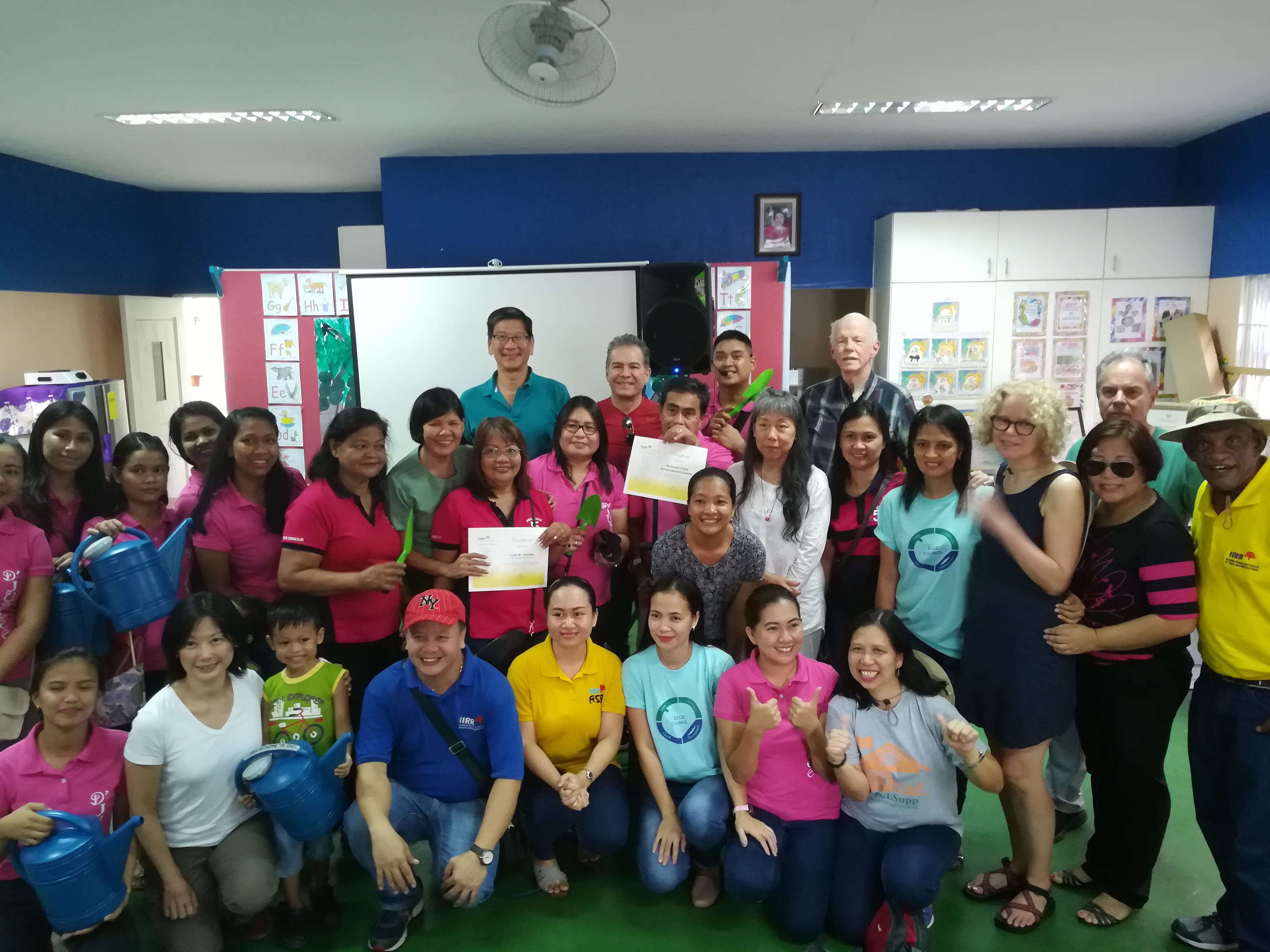Program Info
- Program established: 1967
- Staff: 26 (Yen Center: 11)
- Target Program Areas/Regions: Cavite, Quezon, Panay
- Core Program Areas:
- Food Security and Resilient Livelihoods
- Disaster Risk Reduction and Climate Change Adaptation
- Global Learning and Partnership Building
- Flagship Program: Food Security and Resilient Livelihoods
- Sub-Regional Field Offices:
- Learning Communities – Cavite, Quezon, Ivisan
Office Info
Country Director – Emily Monville Oro
Address:
39 Aguinaldo Highway
IIRR Y.C. James Yen Center Biga 2,
Silang, Cavite 4118, Philippines
Email: philippines@old.iirr.org
Challenges and Opportunities
The Philippines, a Pacific island nation, is one of the most disaster-prone countries in the world. Each year the Philippines is hit by over 20 tropical cyclones, several of which typically have catastrophic effects on the local population and economy, which relies heavily on fishing and agriculture. Natural calamities and economic shocks within the past few years have deeply affected the agricultural sector, threatening to push farmers deeper into poverty. These unpredictable and accelerating climatic episodes bring millions of dollars of damage to the economy. Resultantly, food insecurity is a serious issue among school-aged children — 7 million children in Philippines experienced hunger and malnutrition in 2017. Data also shows that 24.8% of pregnant mothers are nutritionally-at-risk (Business Mirror, 2017).
How IIRR Helps
- Providing smallholder farmers with access to new technologies, information, support services, market linkages and financial trainings that will enable them to adjust, modify or change their current production systems and practices.
- Forming coalitions of trained CERTs (Community Emergency Response Teams) who put contingency plans and early warning systems in place and strengthen emergency preparedness protocols. These teams have been particularly crucial in sustaining the at-risk livelihoods of farmers and fisherfolk.
- Working closely with the Philippines Department of Education to tackle the issue of youth malnutrition through sustainable gardening techniques. IIRR’s Bio-Intensive Garden (BIG) standard is a set of principles and practices developed to enable schools to sustain gardens and strengthen their links with school feeding programs. Together with parents, teachers and the communities, IIRR uses vegetables grown in BIG school garden projects to supplement school feeding programs. IIRR conducts BIG trainings for teachers and administrators in various schools throughout Cavite Province. Currently, the practice has been implemented in 373 public elementary schools and 36 daycare centers in Cavite.
Partnerships:
- Department of Education
- Department of Agriculture (DA)
- FNRI
- Department of Social Welfare and Development (DSWD)
- Department of Health and National Research Stations (NARES)
- Give2Asia
- Aksyon Kilma Pilipinas
- PHILCAN (Philippine Coalition of Advocates for Nutrition Security)
- Partners for Resilience
- PROLINNOVA (Promoting Local Innovation)
- CCAFS (Climate Change, Agriculture and Food Security)
General Country Stats
- Some 22 million Filipinos—more than one-fifth of the population—still live below the national poverty line (World Bank, 2015 statistics).
- 27.6 million Filipinos have been impacted by natural disasters. Between 1995-2005, the Philippines was among the top ten countries affected by disasters, with 130 million residents displaced or otherwise severely affected by weather events (CNN).
- National Nutritional Statistics (UNESCO, 2015 statistics):
- Reduced wasting (17.8%-13.7%) and stunting (11.0%-4.1%) prevalence.
- Significant decrease in underweight children (63%-34%)
- Reduced anemia prevalence from (20.8%-4.2%)
- Improved nutritional knowledge (65.3%-76.2%) and attitudes (78.2%-89.1%) among children on the importance of home gardens and proper nutrition.
- BIG offered in 42,000 schools nationwide.
Important Facts and Figures
2014
- BIG Program: 153,940 elementary school children benefited from the 70 diverse school gardens implementing Bio-Intensive Gardening (BIG) programs.
- 217 children ages 3-5 benefited from 6 day care centers practicing BIG.
- 3,136 children (1,647 boys and 1,489 girls) grades 1-3 received nutrition education through curriculum integration.
- 509 Department of Education teachers from 241 schools in Region 4-A have been trained on enhanced school nutrition intervention.
- 67 impoverished farmers benefited from cassava and lechon (roasted pig) through linkages formed with 20+ additional households through a cassava-based Local Value Chain.
2015
- 151 impoverished farmers received livestock from IIRR.
- 450 farmers were organized into 18 Farmer Field School Groups that offers strategies to escape from poverty.
2016
- The number of lighthouse schools and crop education sites increased from 58 to 300, benefitting 200,000 new students.
- 1,839,445 students from 2,732 public elementary schools received nutrition, environment, and DRR information.
- 542 household received access to diverse food sources for supplementary nutrition (204 through BIG-related projects, 119 through BRIDGE/AMIA projects, and 219 through the CSA program).
2017
- 1,598 schools and 626 parents received nutrition training at 58 lighthouse schools.
- 237 schools served as crop education sites and community seed banks for nutritionally-relevant indigenous crops.
- 90 Child Development Centers in three provinces started gardens that benefit 3,393 children.
- 254 local and regional-level Social Welfare and Development staff were trained on the integrated approach of implementing supplementary feeding, gardening and nutrition education.
- 335 households were given garden starter kits.
- 66 small family farmers were taught how to raise native pigs and native chickens providing reliable and safe food (animal protein), augmenting economic assets and income sources.
- 1788 total distributions of plant and livestock start-up materials were completed.
2018
- 109 additional lighthouse schools nationwide have been trained to implementing the integrated school nutrition model (as of July 2018).
Philippines Team
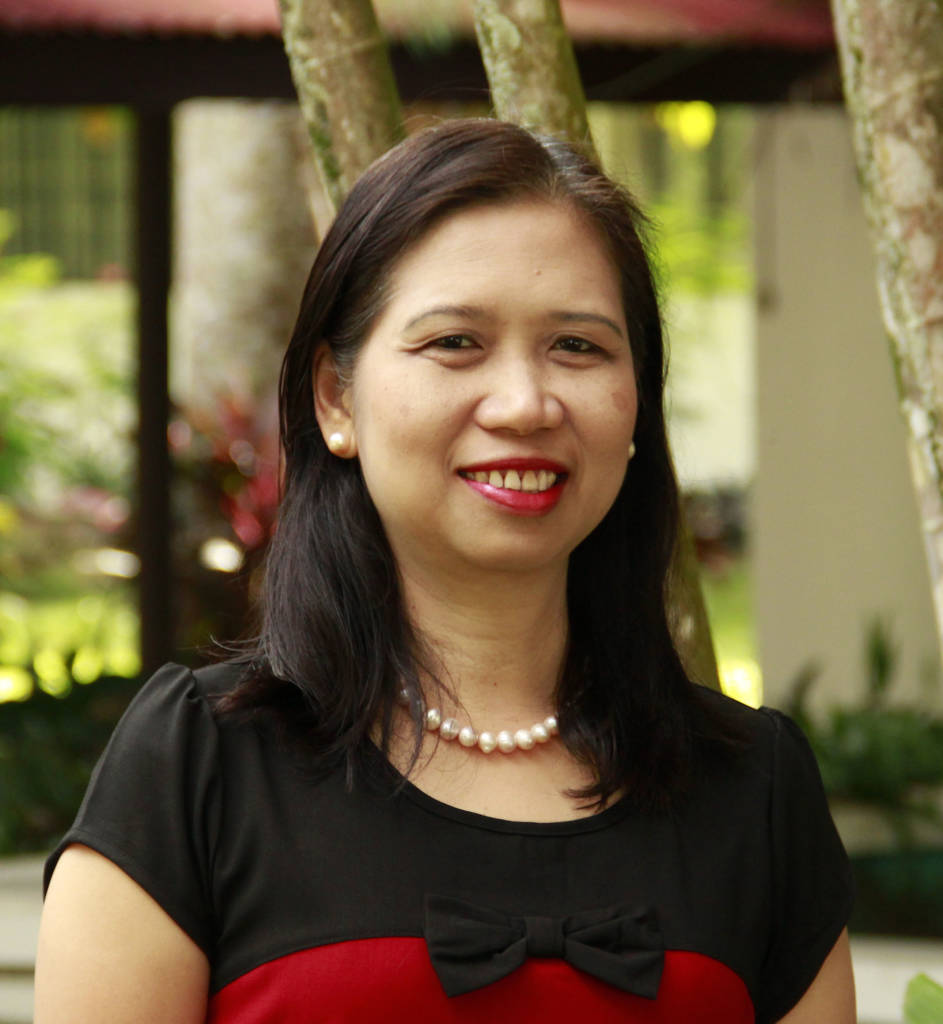

Philippines Country Director
Emily has 28 years of experience in community development, health and nutrition (clinical, research and public health) and NGO management. She finished her Master’s in Public Health under a full scholarship from the James P Grant School of


Project Coordinator
Michelle is the Project Coordinator of IIRR’s Nutrition in Day Care Project of the Philippine Program. She is responsible in executing project activities, data gathering, monitoring and evaluation plan. From


kk
Jowen has 20 years of working experience in rural development work. She has been with IIRR’s Philippine Program for three years now. She provides technical support and development in DRR-CCA programs in Cavite, Panay and Quezon Learning Communities.


Office Assistant
Sheela joined IIRR-Panay Learning Community Program in Ivisan as the Office Assistant and has been with the institute since 2015. She currently provides administrative and logistics leads to the implementation of the project which includes recording, filing, storage
Office Assistant
Mabel is IIRR Philippine Program’s Office Assistant in Quezon Community Field Office in Guinayangan. She currently handles the administrative and logistic leading to the implementation of Quezon Community Program activities, assists in financial transactions and takes care of


Research Associate
Kirstein is a Research Associate in IIRR Philippine’s Food Security and Nutrition Program. She provides support for data collection and analysis for the action research project entitled “Addressing Food and Nutrition Security in the Philippines through School Interventions”.
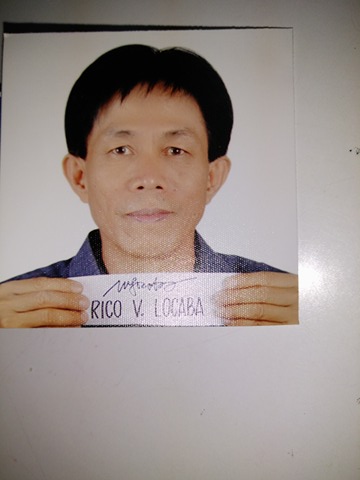

Climate-Smart Agriculture Manager
Rico has 25 continuing years of rural community development focusing on agri-based livelihood and small enterprise creation as part of resiliency building in the countryside with small and emerging organizations. He completed his Master of Science in Disaster
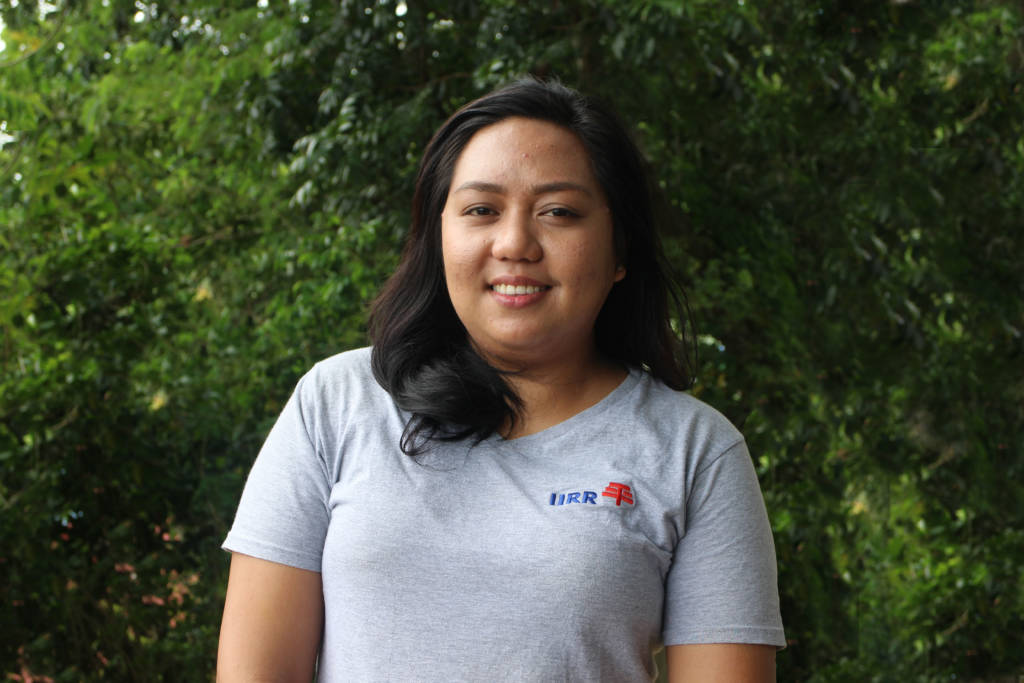

Program Researcher
Kharla is IIRR Philippine Program’s Researcher and has been with the Institute since 2016. She handles research protocol and data management of Quezon and Ivisan Learning Communities. She is stationed at Quezon Field Office in Guinayangan. She works
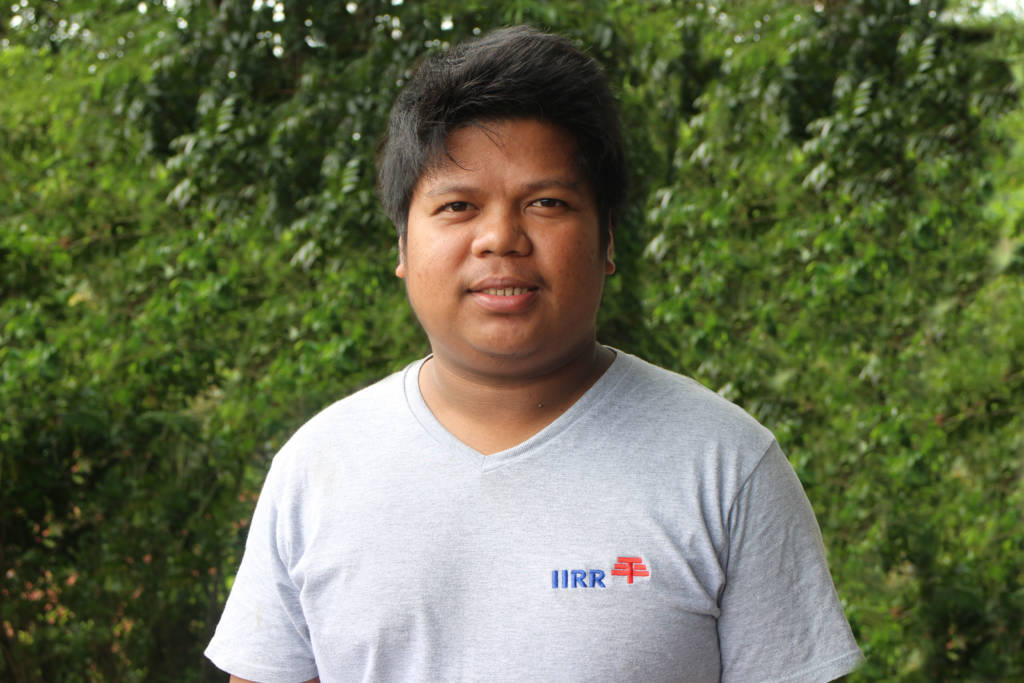

Field Assistant
Carlo is IIRR Philippine Program’s Field Assistant in Guinayangan, Quezon and has been with the Institute since 2015. He works with the Learning Community on Livestock projects, Mangroves Rehabilitation and other community-based adaptation strategies on climate resilient agriculture.


Finance Officer
Vida is the Finance Officer of the Philippine Program. She works with Finance Office staff members in the implementation of financial management systems and the day-to-day financial transaction. She is responsible for applying accounting principles and procedures in
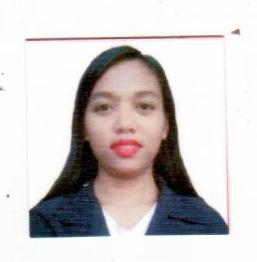

Field Facilitator
Alyanna is the Local Field Facilitator under the Family Farming Project Phase II of the Philippine Program. She currently coordinates community activities and partnership mechanisms with the assigned local barangay governments, farmer groups and other local partners. Alyanna


Adminstrative and Logistics Coordinator
Ning is the Philippine Program’s Administrative and Logistics Coordinator. She is a long-serving staff of IIRR with 24 years of working experience on administrative management. Prior to joining IIRR, Ning worked with a local manufacturing firm. She currently


Project Assistant
Angie is the Project Assitant of IIRR’s Cavite-based projects: School Nutrition and Day Care Projects; Family Farming Project under the Philippine Program. She provides administrative and logistic lead to the implementation of Cavite learning community project activities and


Project Coordinator
Angelyn is a Project Coordinator in IIRR Philippine’s Family Farming Project. She is responsible in developing project workplans, executing project activities, data gathering, monitoring and evaluation plan. She also provides technical assistance and facilitates workshops and trainings with the
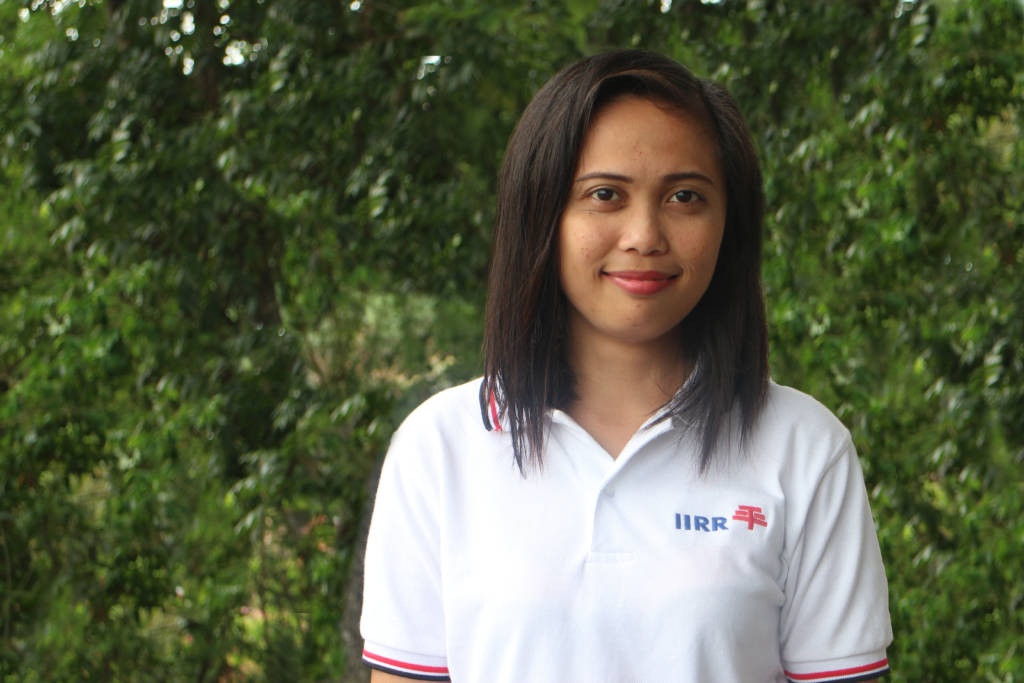

Field Assistant
Darlyn is IIRR Philippine Program’s Field Assistant since 2015. She handles project with connection to Low External Input on Rice Production and other connected projects under Climate Resilient Agriculture. She also worked as Community Facilitator under JDC Program


Local Field Facilitato
Maribeth is the Local Field Facilitator under the Family Farming Project Phase II of the Philippine Program. She currently coordinates community activities and partnership mechanisms with the assigned local barangay governments, farmer groups and other local partners. Maribeth


Agriculture Officer
Shiela is an Agriculture Officer in IIRR Philippine Program’s Food Security and Nutrition Program for less than a year. She provides technical assistance to project partners, executes research activities and data collection for the school garden component of


Project Intern
Harlyn started as project intern in year 2015, after 11 months of internship program she was hired as Agriculture Technician under the DA-AMIA Project in Panay LCP. She works with learning community on Agroforestry including nurseries and root


Program Manager
Irish currently manage the Cavite learning community program with direct involvement in project implementation, capacity development and monitoring and evaluation. Irish has been with IIRR since 2010. As a program manager, Irish provides strategic support to project staff
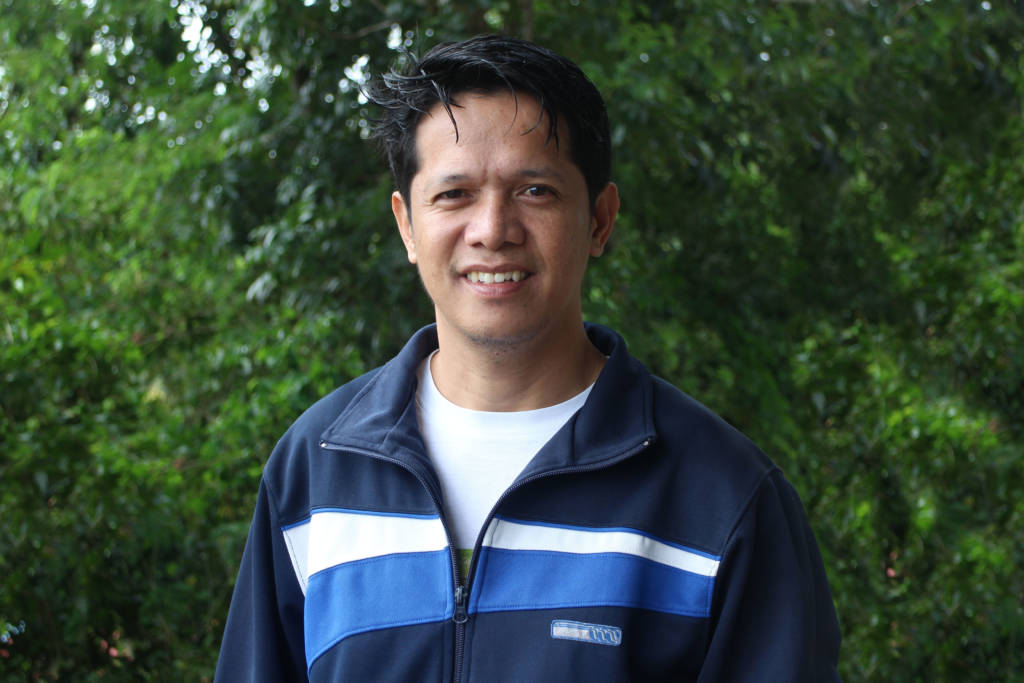

Field Assistant
Jeff is IIRR Philippine Program’s Field Assistant in Guinayangan, Quezon and has been with the Institute since 2015. He works with the Learning Community on Upland Rice Production, Peanut Propagation and other community-based adaptation strategies on climate resilient
Livelihood Officer
Junedel is the Livelihood Officer of IIRR’s Scaling up and Sustaining Community – based Adaptation and Livelihood Resilience Project of the Philippine Program in Panay Learning Community. He currently handles the supervision of the Agricultural Technicians (ATs) in

